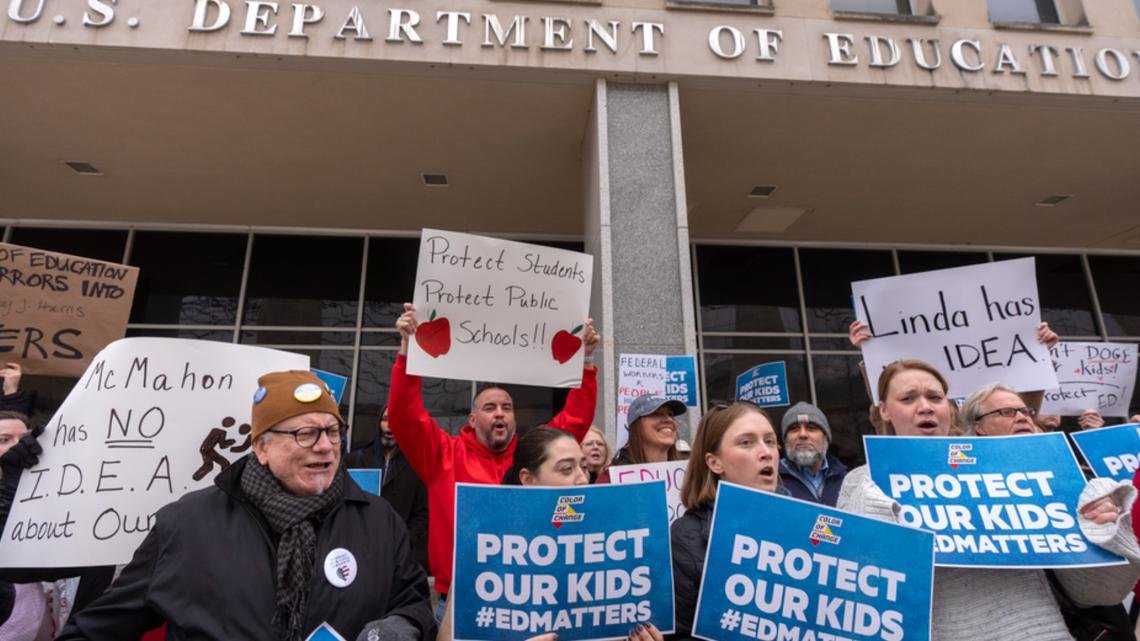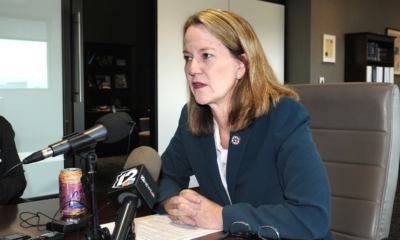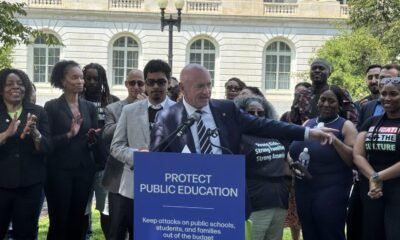cct-tracking
Trump Moves to Dismantle US Education Department with New Shutdown Plan

WASHINGTON — President Donald Trump has announced plans to sign an executive order on Thursday aimed at shutting down the U.S. Education Department. This move represents a significant step in fulfilling a long-standing campaign promise that appeals to conservative critics of the agency.
Trump has consistently labeled the Department of Education as a source of waste and liberal bias. However, experts argue that dismantling it entirely would require congressional action, as the department was established by Congress in 1979.
A White House official, who spoke on condition of anonymity, revealed that the executive order would instruct Secretary Linda McMahon to take necessary measures to facilitate the department’s closure. The order emphasizes the need to maintain essential services and programs while returning educational authority to the states.
In recent months, the administration has already initiated significant cuts to the department’s workforce, reducing it by nearly half, and has targeted various divisions, including the Office for Civil Rights.
Public school advocates warn that eliminating the department would exacerbate inequalities within the education system. The National Parents Union voiced concerns that such actions would deny millions of children equitable education opportunities.
As the department currently oversees billions in funding and manages a substantial federal student loan portfolio of $1.6 trillion, many question how its functions might be redistributed or discontinued entirely. McMahon pledged to preserve key initiatives, including Title I funding for low-income schools.
Federal funding constitutes about 14% of public school budgets, often aiding vulnerable populations through specific programs. Colleges and universities, meanwhile, depend heavily on federal financial aid and research grants.
Republicans have long criticized the Education Department, arguing that it improperly involves the federal government in local education matters. This sentiment has gained traction recently, reflecting conservative parents’ desires for more control over educational policies.
In his campaign, Trump promised to return educational authority to the states and condemned the department as dominated by “radicals” whose regulations overreach. Ironically, he has also utilized the department’s powers to enforce his agenda, including scrutiny of policies surrounding transgender athletes and diversity initiatives.
Despite these plans, even some of Trump’s own allies express skepticism about the feasibility of closing the department without congressional backing. Past attempts to dismantle it, including a recent House amendment supported by some Republicans, have failed.
Former Education Secretary Betsy DeVos aimed to streamline the department and sought to consolidate K-12 funding into block grants, a proposal that faced substantial pushback.
This ongoing debate underscores critical tensions surrounding educational policy and the role of federal oversight in the United States.


















